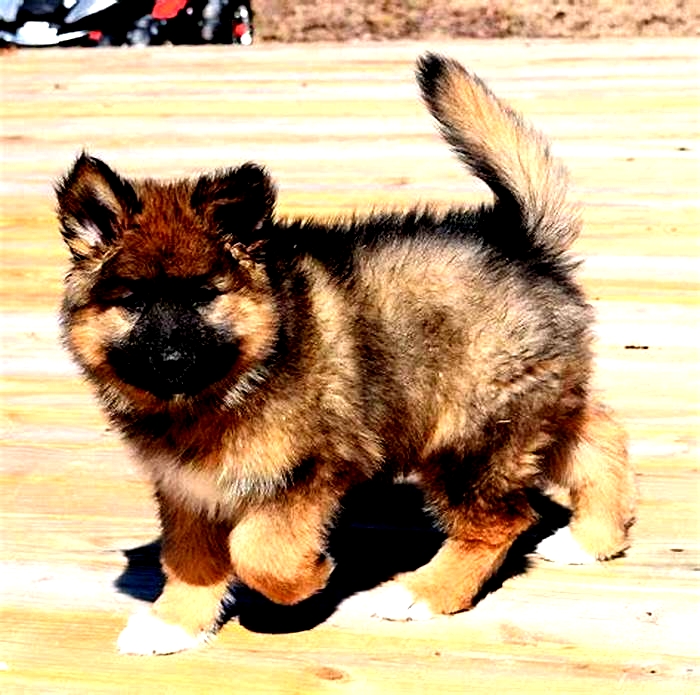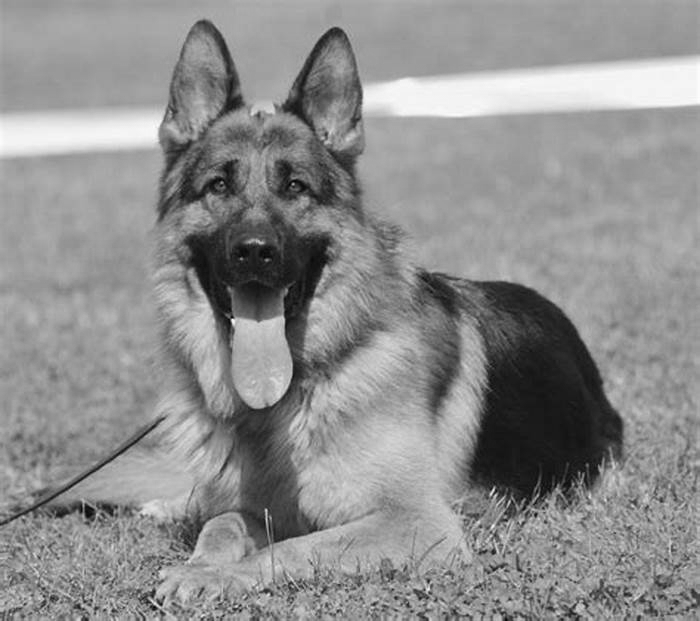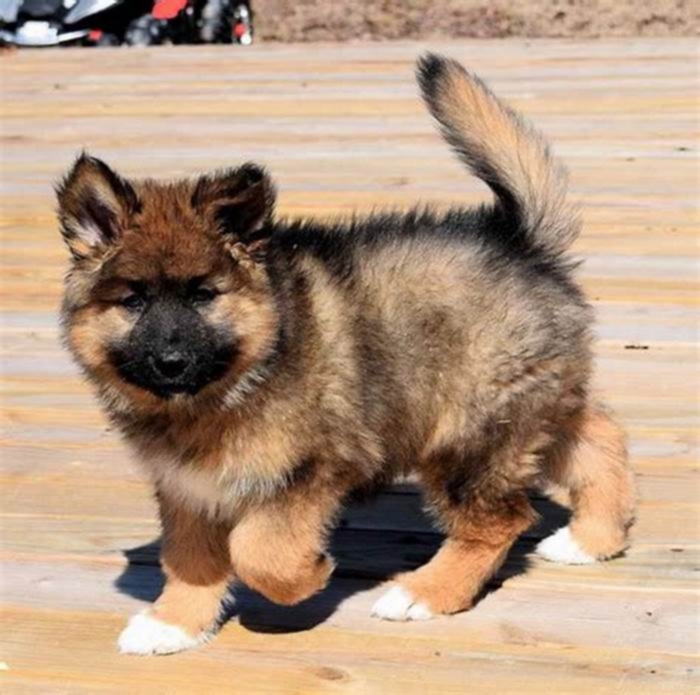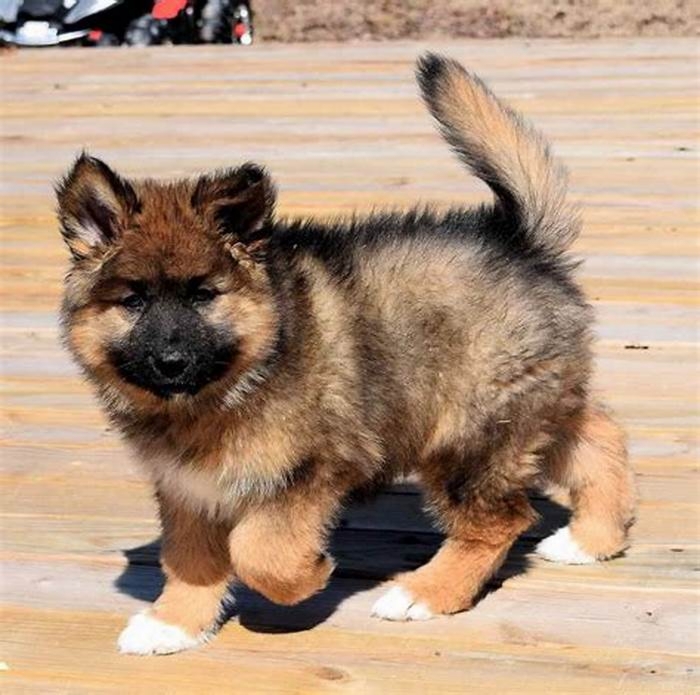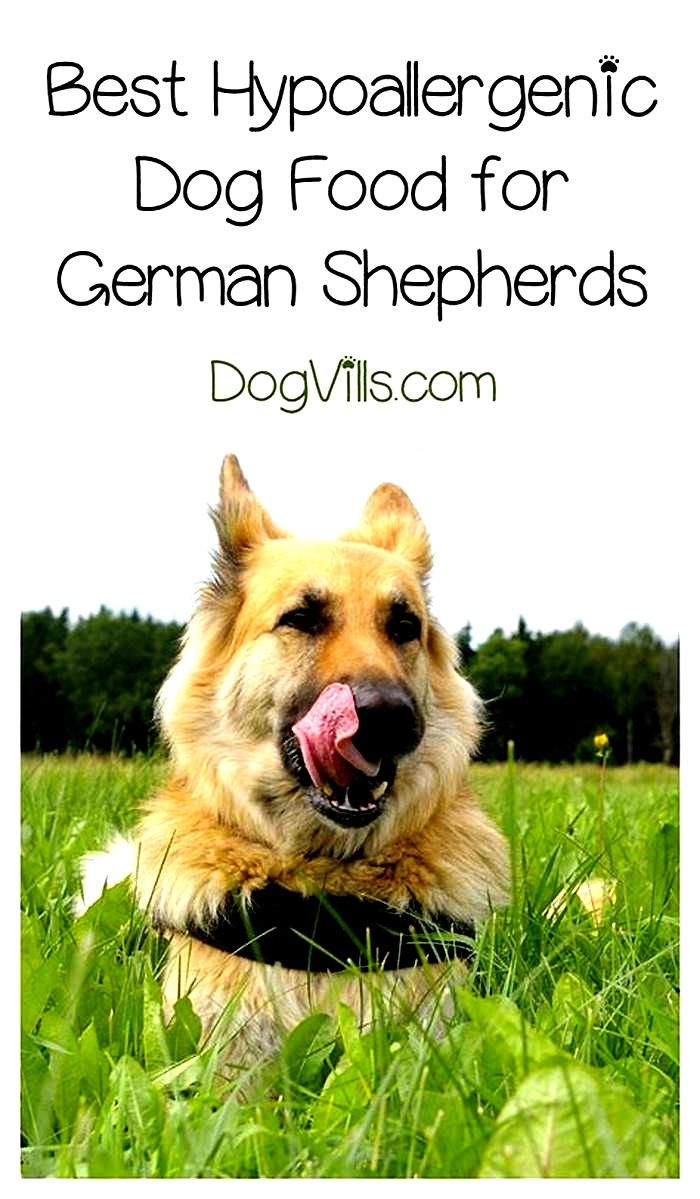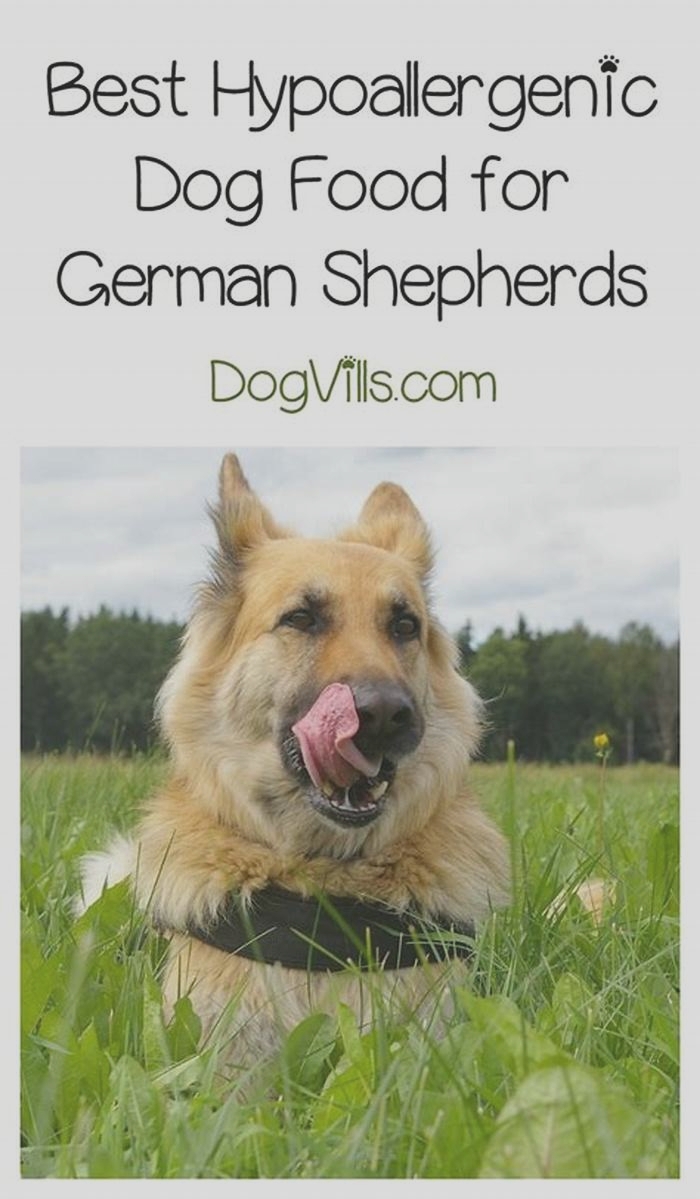german shepherds hypoallergenic
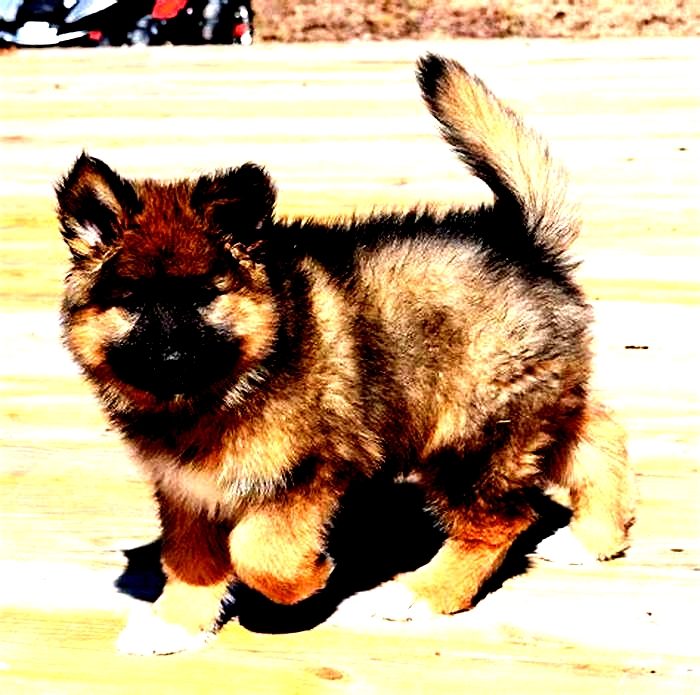
Are German Shepherds Hypoallergenic?
If you have allergies and are thinking about getting a German Shepherd you may have wondered, are German Shepherds hypoallergenic? This article will answer that question as well as give you some tips of how to reduce allergens if you have a non-hypoallergenic dog.
So, Are German Shepherds Hypoallergenic?
No, German Shepherds are not hypoallergenic. German Shepherds shed year long, but twice a year they blow their coat and shed ever more heavily, which isnt good for people with pet allergies.
If dog fur and dander irritate you, then you may want to consider another dog breed that doesnt shed. If your allergies are not too severe you can try the tips below to reduce the allergens caused by GSD fur.
Reasons Why German Shepherds Are Not Hypoallergenic
Double coat
German Shepherds have thick double coats that shed a year long. In the fall, their double coat grows thicker in anticipation of winter, whereas in the spring, they lose some of that extra protection to keep them cool for the summer.

The spring and fall are known as shedding season, because that is when GSDs blow their coats in accordance with the change of the seasons. During this time, they shed A LOT.
All of this shedding can be bad for someone with allergies because of all the pet dander floating around.
Pet dander
Most allergies are actually caused because of the pet dander not just the shedding. Pet dander can stick to your dogs fur, can get on your hands when you pet your pooch, and can float around in the air.
Normally, people have worse allergies around a dog breed that sheds. This is because as their fur sheds, the dander sticks to the fur, and as the fur floats around the house, the dander is spread everywhere. Thus, dogs that dont shed are usually better for people with allergies.
How To Tell If You Are Allergic To German Shepherds
If you are around a GSD and get symptoms such as running nose, stuffy nose, itchy or watery eyes, sneezing, or coughing, you may be allergic to dogs. This is more likely to be true if as soon as you leave the animal the symptoms magically disappear.
Some people are only allergic to a specific type of pet, whereas others are allergic to all pets.
Other people may not start off being allergic to dogs but develop an allergic reaction to them over time.
If this is you, there are some things you can do to reduce the amount of pet dander in your home, which will reduce your allergies.
Ways To Reduce Allergies Living With A German Shepherd
Some people who have a really bad allergic reaction to pet dander wont be able to live with a German Shepherd at all. However, others whose allergies arent as bad, could live with a GSD as long as they take certain actions to keep the dander from accumulating too much in the house.
Below are some suggestions to reduce the allergies caused by German Shepherds:
Regular brushing
One of the best things you can do to reduce dog allergies is to brush your GSD regularly. Regular brushing removes all the excess hair that would normally end up floating around the house.
Removing the loose hair also helps to reduce the amount of pet dander on your pet. When brushing your German Shepherd, it is best to brush them outdoors, so that the hair and dander can be released outside instead of in your home.
Under normal conditions, German Shepherds have low maintenance grooming needs. You can brush them once a week or so and they will look excellent. However, during the shedding season, they need to be brushed multiple times a week to keep the hair at bay.
Using a brush that gets the undercoat
Since GSDs have a double coat, one of the best types of brushes for a German Shepherd is one that attacks their undercoat. This is especially important during shedding season, as the undercoat is the culprit to generating all of that excess fur.
Vacuuming often
Another key to reducing allergens is vacuuming very often, especially when your dog is blowing their coat. Investing in a good vacuum for pet hair will do wonders in reducing the pet dander, as many pet vacuums are designed specifically for eliminating pet dander from the carpet.
Normally, I vacuum once a week. However, during the shedding seasons, I have to vacuum two to three times a week to keep up with the excess fur.
Medicine
Some people are able to effectively manage pet allergies with medicine. If you think you are having an allergic reaction to pet dander, see your doctor and get their suggestions for what medication you can take. With an luck, the medication will make you allergy free.
Restrict your GSD to certain areas
Another way of managing dog allergies is to keep your pet out of certain rooms. Since German Shepherds are clingy dogs, this may not be super easy to do, but keeping your GSD out of certain rooms can provide you with a dog-free and allergy-free space to retreat to if needed.
Keep your clothes clean
Another tip for reducing dander is to keep your clothes as clean as possible. When you are around your dog, dog fur and dander sticks to you clothing. Thus, even when you arent around your dog, you could still be experiencing an allergic reaction.
Some people even have clothes that they only wear to do activities with their dog, and then other clothes that they never wear for dog activities.
Reducing the dander on your clothes will keep you from sneezing all day long, even when you arent around your dog.
Invest in an air filtration system
An air filtration system is another great option for reducing the pet dander in your home. These systems filter out the dander and dirt in the air that is known to cause allergies, so there is less of it in your home.
They even make systems specifically designed to handle pet dander, so it is worth a try if you want a GSD but suffer from pet allergies.
Dont let your dog sleep with you
Another big way to reduce allergies is to not let you dog sleep with you. There are varying opinions on whether you should let your dog sleep in your bed, but for allergies it is clear that clear that a dog sleeping with you will have a negative effect on your allergies.
Although it can be hard, it is best never to start the habit of letting your dog get in the bed if you are allergic to them. Invest in a comfy dog bed and they will be just fine.
Final Thoughts
German Shepherds are great dogs, and although they are a wonderful breed, they may not be right for everyone, especially someone who suffers from pet allergies. German Shepherds are not hypoallergenic, and they shed year-round.
If you suffer from milder pet allergies, you may still be able to own a GSD if you follow the tips above to reduce pet dander in your home. Regular brushing, vacuuming, taking medicine, getting an air filtration system, and keeping your clothes clean are all things that can help reduce your allergic reaction.
If you think you may be allergic to German Shepherds, before getting one, try to go around someone elses GSD to see if you present any allergy symptoms. If owning a German Shepherd will be too much for you because of allergies, there are many other great dog breeds that are hypoallergenic for you to consider adding to your family.
Are German Shepherds Hypoallergenic? Facts, Care, and Tips
German Shepherds have earned a well-deserved reputation as one of the most beloved and sought-after dog breeds worldwide. Renowned for their intelligence, loyalty, and athleticism, they make excellent companions. However, it's important to note that German Shepherds are not hypoallergenic, which can trigger allergic reactions in some individuals. Fear not if you're allergic to dogs, but have your heart set on a German Shepherd. You can take measures to minimize your risk of experiencing an allergic reaction. In this blog post, we will explore the facts surrounding German Shepherds and allergies and provide helpful care tips to help you effectively manage and control your allergy symptoms.
Understanding Hypoallergenic Dogs
If you suffer from allergies, you may have assumed that owning a dog was off the table. However, several hypoallergenic dog breeds are suitable for individuals with allergies. These breeds produce less dander and shed less fur, the primary allergens that can trigger allergic reactions.
Hypoallergenic Dogs
Hypoallergenic dogs produce fewer allergens, such as dander and saliva, which can provoke allergic responses.
It's important to note that no dog is completely 100% hypoallergenic, as all dogs produce some dander and saliva, but hypoallergenic breeds do so at a significantly lower rate.
Types of Hypoallergenic Dogs
Poodles: Intelligent, loyal, and athletic poodles come in standard, miniature, and toy sizes.
Maltese: Known for their gentle temperament and long, silky fur, Maltese require regular grooming to prevent matting.
Bichon Frise: Playful and affectionate. Bichon Frises are small, white dogs that require regular grooming to maintain hypoallergenic fur.
Yorkshire Terrier: With their fluffy coat and hypoallergenic fur, Yorkshire Terriers are small dogs that need regular grooming to keep their long, silky hair in good condition.
Schipperke: Intelligent, loyal, and athletic, Schipperkes are small black dogs with hypoallergenic fur, requiring regular grooming to prevent matting.
While these breeds are considered hypoallergenic, spending time with individual dogs is still essential to determine your sensitivity and potential allergic reactions. Maintaining proper grooming and cleanliness practices can also minimize allergens in your living environment.
Understanding German Shepherd Coat Types
German Shepherds are renowned for their stunning coats, but did you know that there are three distinct coat types within the breed? Let's take a closer look at each of these coat types and their unique care needs:
Short-haired German Shepherds
They sport a short and dense coat that is relatively low-maintenance. These dogs shed twice a year but typically don't require regular brushing.
Medium-haired German Shepherds
Their coat is slightly longer than the short-haired variety. Regular brushing is essential. Like their short-haired counterparts, they also shed twice a year.

Long-haired German Shepherds
These dogs have long, flowing coats that can be straight or wavy. Regular brushing is crucial to maintain their coat health and prevent mats. Similar to the other coat types, they shed twice a year.
It's important to note that a German Shepherd's coat type is primarily determined by genetics. However, factors such as environment and diet can influence shedding levels. German Shepherds in colder climates tend to shed more than those in warmer climates. A high-quality diet can also reduce shedding, while a low-quality diet may exacerbate it.
Regardless of the coat type, regular brushing is key. It helps remove dead hair, prevent mats, and keep the coat in good condition. Regular bathing is advisable to manage shedding effectively. You can keep your German Shepherd's coat healthy, tidy, and free from tangles by giving proper attention to it.
Does Coat Type Influence Temperament?
The temperament of a German Shepherd is not influenced by its coat type, as there is no scientific evidence supporting such claims. German Shepherds are widely recognized for their intelligence, loyalty, and hardworking nature. They excel in various roles, including police work, search and rescue missions, and herding.
German Shepherds come in two main coat types: long-haired and short-haired. Long-haired German Shepherds possess a thick double coat that requires regular brushing to prevent matting, while short-haired German Shepherds have a single coat that is easier to maintain.
Contrary to popular belief, there is no correlation between coat type and temperament. Both long-haired and short-haired German Shepherds can exhibit a wide range of temperaments.
The temperament of a German Shepherd is primarily influenced by its breeding and upbringing rather than its coat type. Working-line German Shepherds, bred for specific tasks, may display a higher drive and focus but can still be loving and affectionate companions.
It is crucial to meet the dog and its parents in person. Conduct thorough research and find a reputable breeder when considering a German Shepherd.
Several factors can influence a German Shepherd's temperament:
Early socialization: Proper socialization from an early age helps German Shepherds develop into well-rounded and well-adjusted dogs.
Training: German Shepherds are intelligent and eager to please. With consistent training, they can learn a variety of commands and behaviors.
Exercise: German Shepherds are active dogs that require ample exercise. Insufficient exercise can lead to boredom and potentially destructive behavior.
You can help ensure that your German Shepherd develops a loving and stable temperament by providing proper care, training, and exercise.
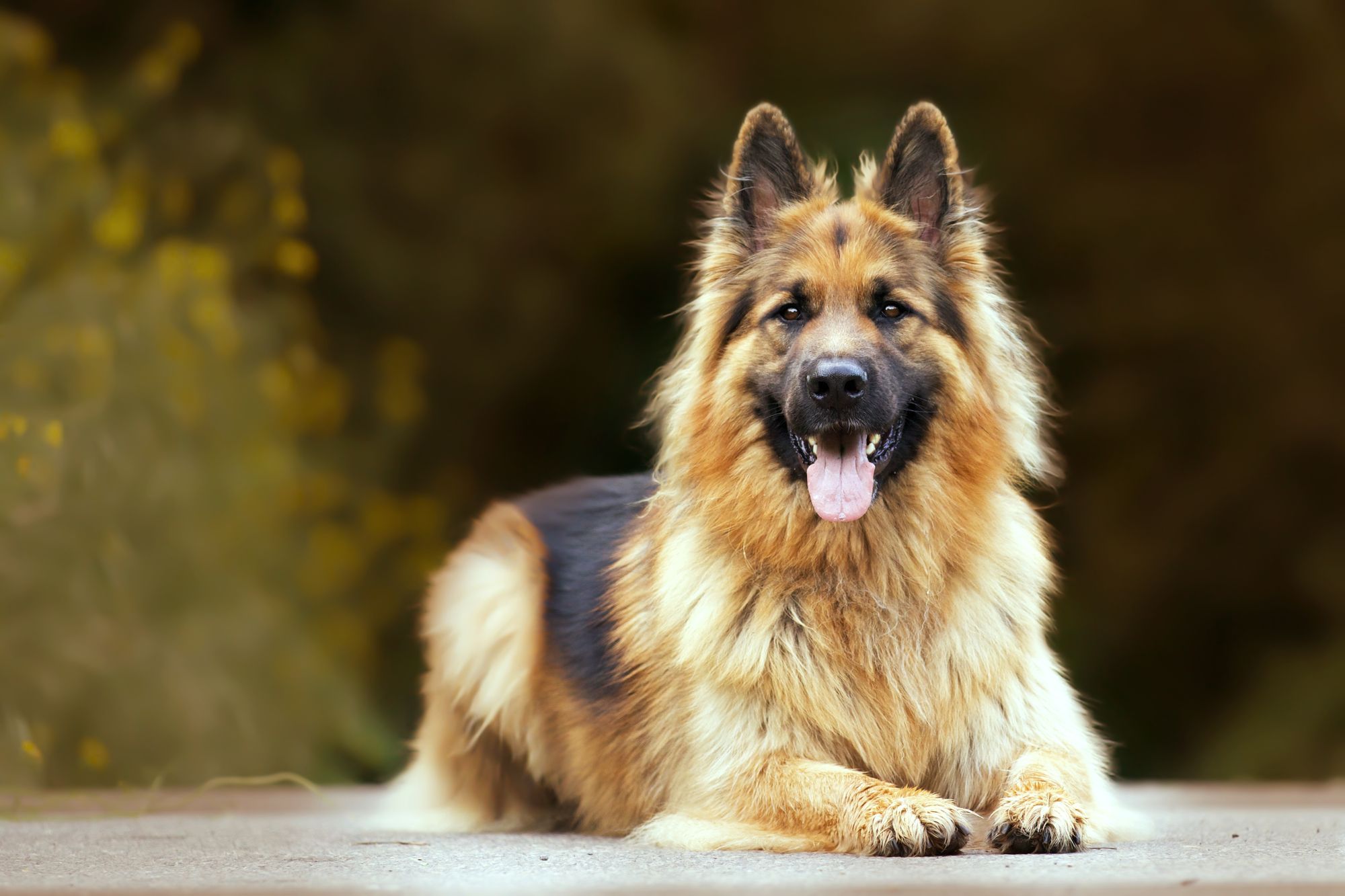
Do German Shepherds Shed a Lot?
German Shepherds are widely recognized as heavy shedders due to their double coats. This coat has a thick undercoat that keeps them warm in colder climates and a shorter outer coat that protects them from the elements. During the shedding seasons in spring and fall, German Shepherds may experience more significant shedding as they shed their undercoats.
If you have allergies to dogs, it's essential to note that German Shepherds are not hypoallergenic and can potentially trigger allergic reactions in some individuals. However, if you're determined to have a German Shepherd despite your allergies, there are measures you can take to reduce the risk of an allergic reaction.
Consider the following factors if you have dog allergies and are contemplating getting a German Shepherd:
The Severity of Your Allergies: Mild allergies may be manageable with the tips above, but severe allergies may warrant considering a different breed.
Age of the Dog: Puppies tend to shed more than adult dogs, so choosing an adult German Shepherd may be preferable if you have allergies.
The Health of the Dog: Dogs with skin issues like allergies or infections may experience increased shedding. It may be advisable to avoid dogs with such conditions if you have allergies.
Ultimately, the decision of whether to get a German Shepherd if you have dog allergies is a personal one. Consulting with your doctor or an allergist is crucial to understand your situation's potential risks and benefits. They can provide valuable guidance and advice tailored to your allergies and help you make an informed decision.
Are German Shepherds the Right Choice for Those with Allergies?
Are you allergic to dogs but still dreaming of having a German Shepherd as your furry companion? Fortunately, you can take steps to minimize the risk of an allergic reaction.
Here's why German Shepherds may not be the best choice for people with allergies:
- German Shepherds are heavy shedders, releasing dander into the air, a protein found in dog saliva and hair that can trigger allergic reactions.
- They produce significant saliva, which may contain dander and contribute to allergic responses.
- German Shepherds have a double coat, shedding their undercoat throughout the year and their topcoat twice a year during spring and fall.
If you're determined to have a German Shepherd despite your allergies, consider the following strategies to reduce the risk of an allergic reaction:
Choose a German Shepherd with a Low-Shedding Coat: Opt for German Shepherds with a single coat rather than a double coat, as they shed less fur and produce less dander.
Bathe Your German Shepherd Regularly: Regular bathing, ideally once a week or more frequently during heavy shedding periods, helps remove dander from their fur. Use a hypoallergenic shampoo.
Schedule Regular Grooming Sessions: Professional grooming will prevent matting and tangles that can trap dander. Aim for grooming every six weeks or more often during heavy shedding phases.
Avoid Brushing Your German Shepherd Yourself: Brushing can release dander into the air. Use a deshedding tool that removes loose fur without dispersing the danger if necessary.
Vacuum Your Home Frequently: Regular vacuuming helps eliminate airborne dander. Opt for a vacuum cleaner with a HEPA filter to trap allergens effectively.
Utilize a HEPA Air Purifier in Your Home: Place HEPA air purifiers in areas where you spend the most time, such as the living room and bedroom, to filter out dander and other allergens from the air.

Consider taking allergy medication: If you still experience allergy symptoms despite taking preventive measures, consult your doctor about over-the-counter or prescription allergy medications that suit your needs.
It's important to note that even with these precautions, there is no guarantee that you won't experience an allergic reaction. Consult with your doctor before considering a German Shepherd or any other dog breed. They can help evaluate your allergies and recommend managing them if you proceed with a German Shepherd.
By following these guidelines and seeking professional advice, you can make an informed decision about owning a German Shepherd while taking measures to minimize the impact of allergies on your daily life.
Are German Shepherds Hypoallergenic?
No, German Shepherds are not considered a hypoallergenic breed. They produce allergens, such as dander, which can trigger allergic reactions in sensitive individuals. German Shepherds have a double coat and shed moderately throughout the year, with heavier shedding occurring during the spring and fall seasons. Despite their shedding tendencies, it's important to note that each person's allergic response may vary. Some individuals with mild allergies may still be able to tolerate German Shepherds, while others with more severe allergies may experience significant reactions. Suppose you have allergies and are considering getting a German Shepherd. In that case, spending time with the breed beforehand is recommended to gauge your reaction and consult with a healthcare professional for personalized advice.
9 Care Tips for German Shepherds
Here are 10 essential care tips to keep your German Shepherd healthy and thriving:
Prioritize Regular Exercise: German Shepherds are active working dogs, so aim for at least 60 minutes of exercise per day, split into multiple walks or runs.
Feed a Nutritious Diet: Provide a high-protein, low-fat diet, choosing between commercial dog food or a balanced home-cooked diet with guidance from a veterinarian.
Focus on Training: German Shepherds are intelligent and trainable, so begin training early with basic commands like sit, stay, and come. Consider advanced training options like agility or obedience.
Socialize Your German Shepherd: Start socializing your pup from a young age to ensure they're comfortable around people and animals. Frequent visits to parks, exposure to new experiences, and walks in different neighborhoods can help.
Schedule Regular Vet Check-Ups: Like humans, dogs need routine medical check-ups. Regular visits to the vet allow for health assessments and vaccination updates.
Trim Nails Regularly: Long nails can cause discomfort, so trim your German Shepherd's nails every 2-4 weeks.
Clean Ears Routinely: German Shepherds are prone to ear infections, so clean their ears weekly using a mild, dog-safe ear cleaner.
Maintain Dental Hygiene: Brush your German Shepherd's teeth at least twice weekly to prevent dental issues, just like humans.
Provide Ample Water: Ensure your German Shepherd has constant access to fresh water to stay properly hydrated.
Following these care tips help your German Shepherd lead a long and healthy life, ensuring their well-being and happiness.
Conclusion
German Shepherds may not be hypoallergenic, but with proper care and precautions, it is still possible for allergy sufferers to enjoy the companionship of this incredible breed. By understanding the shedding habits and potential allergens associated with German Shepherds, you can take steps to minimize the risk of allergic reactions. Remember to maintain a regular grooming routine, provide a nutritious diet, and keep up with exercise and training. Additionally, consulting with a veterinarian and considering alternative breeds of hypoallergenic options can also be helpful. With the right approach, you can create a harmonious and fulfilling relationship with your German Shepherd while managing your allergies effectively. Ultimately, the love and loyalty of a German Shepherd can make the efforts worthwhile, as they bring joy and companionship into your life.

